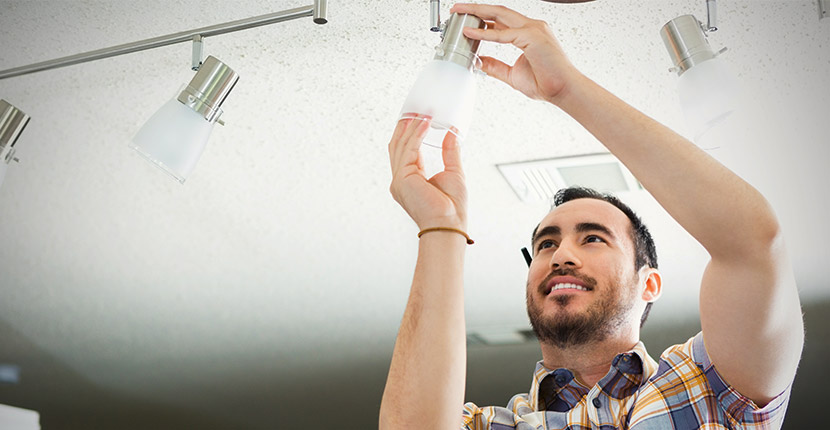What Kind of Light Bulb Lasts the Longest?
- by Bryan Veldboom - updated on 2/25/2022

Light bulbs have changed a lot over the past decade. For many years, incandescent bulbs were the staple of home lighting. As technology advances, however, incandescent bulbs are being gradually phased out in favor of other bulb types that are far more energy-efficient. These new bulbs last much longer and can end up saving you money on your energy bill.
What Type of Light Bulbs are Normally Used In Homes?
In addition to incandescent bulbs, some of the other light bulb types used in homes include fluorescents, CFLs, halogen and LED bulbs. Of these types, incandescent and halogen bulbs are the least energy-efficient. Incandescent and CFL bulbs are slightly more efficient, while LED bulbs are the most energy-efficient bulbs currently available.
How Long are Light Bulbs Supposed to Last?
Different types of light bulbs have very different lifespans. Here is a breakdown of the average number of hours you can expect each type of light bulb to last.
- Incandescent: 750 - 2,000 hours
- Halogen: 2,000 - 4,000 hours
- CFL Screw-based: 8,000 - 10,000 hours
- CFL Plug-in: 10,000 - 20,000 hours
- Fluorescent: 24,00 - 36,000 hours
- LED: 40,000 - 50,000 hours
How Do LED Bulbs Work?
Most light bulbs create light by applying heat to a filament or gas. An LED bulb produces light much differently using a process known as electroluminescence. LED is short for light emitting diode. Think of a diode as a kind of semiconductor which contains a negatively charged N region bonded to a positively charged P region with electrodes on each end. When electricity passes through this P-N junction it causes the movement of electrons from one side of the diode to the other. This movement of electrons creates light.
Electroluminescence consumes very little energy since very little heat is generated. Also, since LEDs do not contain filaments or any other components that break or burn out rapidly, they have much longer lifespans than other light bulb types. Because they're so much more efficient, switching to LED bulbs can actually save you money on your electric bill. Plus, you'll have to replace LED bulbs far less often.
How to Make Light Bulbs Last Longer?
Light bulbs can fail prematurely if they aren't being used properly. Be sure that your fixtures are compatible with the type of bulbs you plan on using in them. You also need to be sure that the bulb you choose is equal to or less than the maximum wattage your fixture can handle. The wattage rating can typically be found written somewhere on the fixture itself, in the user's manual or on the manufacturer's website.
Bulb failure can also be caused by improperly connected lamps and faulty wiring. Dimmer switches can also cause a problem. Older dimmer switches were often designed specifically for incandescent bulbs. Using a different type of bulb in a fixture attached to one of these switches can damage the circuitry in the bulb, causing it to burn out too quickly. If you have fixtures connected to a dimmer switch, be sure that the dimmer switch is compatible with the type of bulb you plan on using.
Can Heat Damage LED Lights?
Heat is an LED bulb's worst enemy. Because of this, you want to be careful when using LED bulbs in enclosed fixtures or areas with low ventilation. Enclosed fixtures make it difficult for LED bulbs to disperse heat into the area around them, which can cause them to overheat. If you have enclosed fixtures, there are LED bulbs available that are specifically designed for this use. If an LED bulb is compatible with enclosed fixtures, it should say so on the packaging or manufacturer's website.
Trust Batteries Plus for Your Home, Vehicle & Business Lighting Needs
Whether you're looking for an LED bulb for your bedroom, a new headlight bulb for your truck or a new ballast for your business, Batteries Plus has you covered. Shop our enormous selection of lighting solutions online, including our selection of smart light bulbs. Need answers to your questions? Check out our Lighting Purchasing Guide or stop into your neighborhood Batteries Plus and have your questions answered in person.
You'll also find additional answers in our blog. Some related topics include "Lighting Tips That are Easy on the Eye" and "5 Types of Indoor Lighting Fixtures at Batteries Plus."